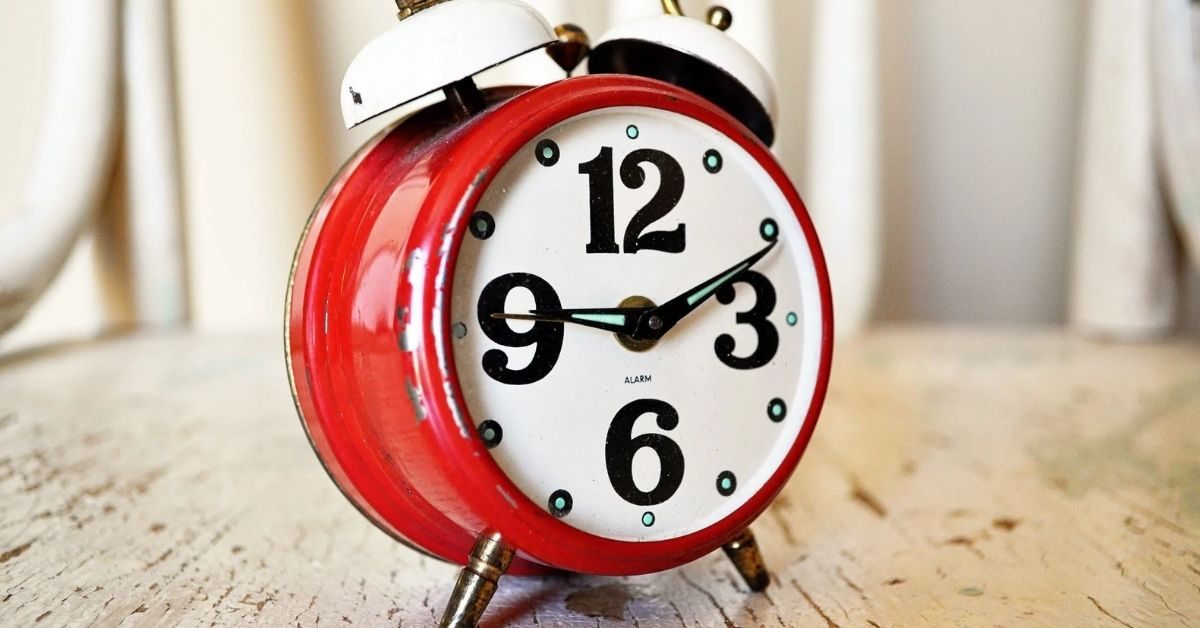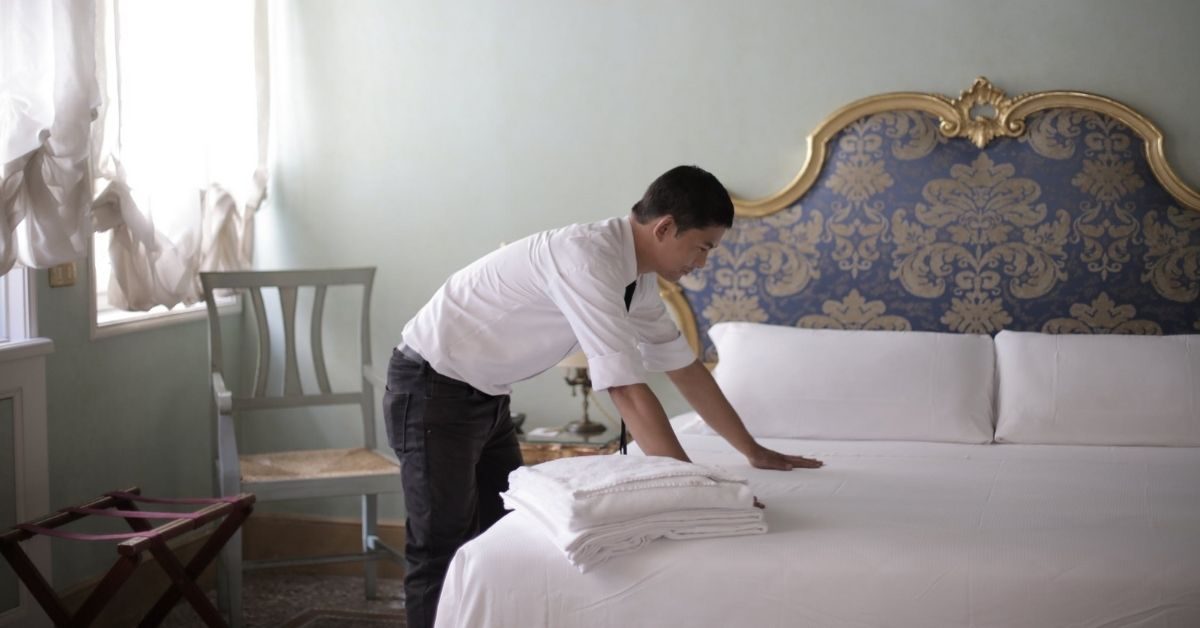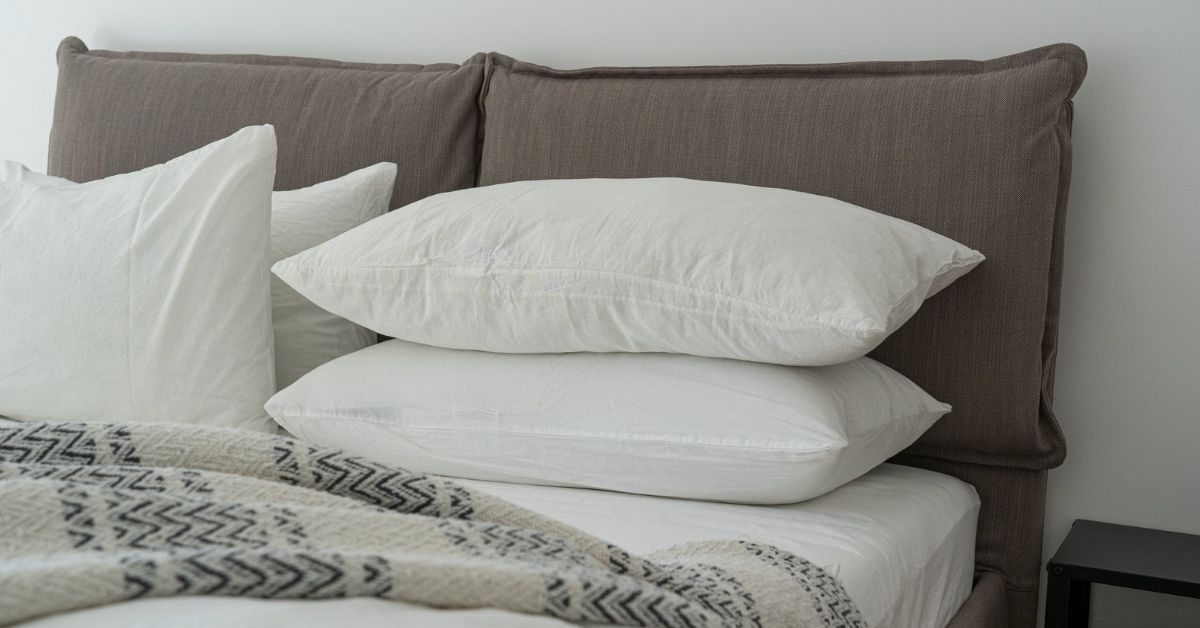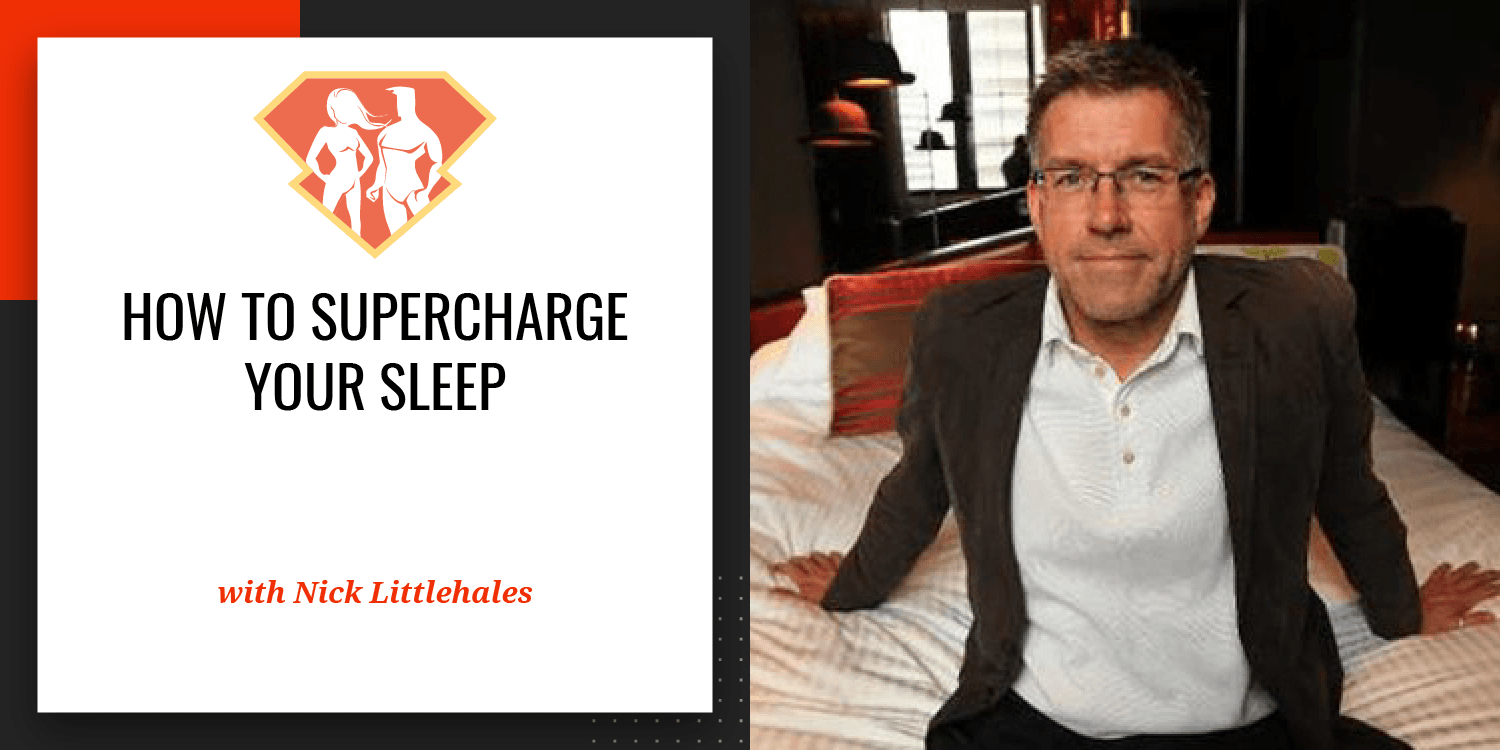Known as the ‘Game Changer, elite sports sleep coach, Nick Littlehales, joins Dr. Rangan Chatterjee in this inspiring podcast.
Delving into his vast career coaching top sports teams and athletes to sleep better, Nick Littlehales gives a ton of wisdom on how to sleep better every night.
Not an elite athlete? Don’t worry!
Nick Littlehales’ advice works for everyone.
Read on to learn Nick’s top seven sleep hacks to help you get a better night every night.
What Is This Nick Littlehales Podcast All About?
Elite sleep coach, Nick Littlehales, is the author of the profound sleep book, Sleep: The Myth of 8 Hours, the Power of Naps, and the New Plan to Recharge Your Body and Mind.
Not only was Nick the former chair of the UK Sleep Council, he’s the foremost sports sleep coach in the world, having worked with record-breaking cyclists for British Cycling and Team Sky, international soccer teams, NBA and NFL players, and Olympic and Paralympic athletes.
In this episode, Nick Littlehales dives into his best known strategy, The R90 Technique.
The R90 Technique consists of 7 Key Sleep Recovery Indicators (KSRI). These are seven small things you can do right now that add up to big results.
Focusing on improving performance through patterns Nick gives you top tips on what you can do to get your slepe back on track immediately.
Nick Littlehales’ 7 Strategies for Better Sleep Performance
Looking to improve your sleep performance? Tired of tossing and turning every night.
Take the advice of top sports sleep coach, Nick Littlehales, and try these seven techniques for sound sleep every night.
1. Learn about circadian rhythms

Our circadian rhythm, also known as our body clock, is the natural cycle that our bodies go through in a 24-hour period.
Affected by light, your circadian rhythm is responsible for regulating various body functions, including sleep, hormones, body temperature and appetite. Disruptions in this system may be linked to a host of other medical issues.
Nick Littlehales recommends taking some time to learn about circadian rhythms:
“If you just get a little bit of a better understanding of the human relationship with light and dark, you’ll start to figure it out.”
2. Know your chronotype and honor it

Have you ever heard the term “night owl” or “early bird/morning lark”?
Night owls tend to sleep late but have trouble waking up in the morning. They usually prefer to schedule activities in the evening hours.
Morning larks tend to wake up early and sleep early, preferring to get tasks done in the morning.
This is more than just a simple personal preference. It’s deeply rooted in human evolution and genetics, and it’s referred to as a chronotype.
When Nick works with an elite athlete, he identifies their chronotype in order to schedule their days properly.
Learn which chronotype you are. This will help you maximize performance, not only during their waking hours, but also their sleeping hours.
According to Nick Littlehales, you can make small tweaks immediately which will make a huge difference. He explains,
“There are things you can do right tomorrow relative to your chronotype that can have an effect on your recovery.”
3. Sleep in cycles rather than hours
Nick Littlehales suggests that you should think about your sleep as 90-minute cycles rather than a number of hours. It takes 90 minutes for the body to go through all the sleep phases necessary for recovery, so it makes more sense to work in 90 minute slots.
As Nick explains,
“I knew that sleep is basically measured in 90-minute periods in a clinical situation with all the professors I knew. I looked at the data of the sleep stages over 90 minutes and then [benchmarked it against] another 90 minutes. Five 90-minute cycles is 7.5 hours.”
In this sense, people need five 90-minute cycles of sleep in a 24-hour period.
Littlehales talks about how he used this method to help elite soccer players in Manchester United FC improve their performance by introducing a sleep recovery room for 90-minute sleep breaks.
“We took a room inside the training ground, cleared it out, put in lounging products and encouraged the players to actually go in there and take a nap, take a sleep recovery period. That was the first sleep recovery room in sport. We’re talking 1997/98.”
The coaches observed that the players who took the time to sleep and recover were more alert in the afternoon and their sprints were faster.
As Nick Littlehales explains further:
“When they looked at data in the afternoon, maybe a sprint between A and B over 30 meters, they could see that if they didn’t go and nap, maybe it was a little slower in the afternoon than it was in the morning. It was tiny little things like that. People who [slept] seemed to be more alert and aware and happy in the afternoon whereas the ones who didn’t seemed to be carrying the effects of the morning.”
This theory suggests that people should take a polyphasic sleep approach, where you sleep in short bursts rather than one long sleep during the night. This is how people used to sleep before the invention of the lightbulb.
As Nick puts it:
“We’re not reducing that [8 hours] down, we’re just saying five 90-minute cycles, 7.5 hours in a day.”
However, if you’d like to get all your cycles in at nighttime, set a consistent wake time then count backwards in 90-minute cycles. For example, if you had a 6:30am wake time, your bedtime would be 11pm.
But, if you can only get 4 cycles in a night, you want to find time to nap in the day to add that final 90-minute cycle.
In Nick’s experience, whether you’re an athlete, pilot, nurse, student, parent or whatever, there is a clear connection between making time for polyphasic recovery and your ability to focus and perform better.
4. Develop pre- and post-sleep routines

The Game Changer encourages us to really think about our pre- and post-sleep routines. These routines should and also be in a 90-minute block.
Before going to sleep, he suggests several things, such as shutting down technology, lowering the room temperature, and dimming the lights. All of this should happen in a 90-minute window before your bedtime.
When it comes to wake-up routines, Nick says not to reach for your phone right away.
Your cortisol levels (the stress hormone) are high when you first wake up. Looking at devices only pushes those levels higher, getting you off to a rough start.
Instead, go for a light walk or get the brain ticking over with a podcast or a crossword instead.
Nick also suggests thinking back to your chronotype again. If you’re a night owl, you may want to consider investing in a daylight lamp to help boost your energy in the morning.
5. Find the balance between activity and recovery
Your days are split into activity periods and recovery periods.
According to Nick Littlehales, the balance between these two periods is really critical to maximizing your performance during your activity period.
Take athletes, for example. They’re undertaking huge levels of activity in their days. To perform at peak levels in the future, this needs to be taken into consideration when scheduling their recovery periods.
For the average person, this balance is equally as important.
Think about what it feels like trying to do your job on the days you’ve had seven hours of sleep compared to the days you’ve only had four. There is a noticeable difference in your work quality, speed, and ability to complete other tasks afterwards.
With proper recovery time, there’s a dramatic positive impact on all of these areas.
6. Fix your sleeping environment

Have you ever thought about what exactly happens in a hotel room before you arrive?
Nick Littlehales has.
He uses the example of the professional cyclists he worked with in the Tour de France to talk about how important your sleep environment is.
Temperature, light, air filtration, and sanitation are all critical elements when it comes to getting a great night’s sleep whether you’re at home or on the road.
The problem is that hotels are designed for luxury and comfort. For example, where hotel rooms are snuggly and warm, humans really need cool temperatures for recovery. Where athletes needed no distractions, hotel rooms were set up with large TVs and blue light-emitting devices.
This is when he began to really hone the strategy on sleep environments.
He went ahead of the cyclists to manage the hotel rooms and ensure specific sanitation, air filtration and light exposure. The aim was to get the cyclists feeling confident in their process and getting excited about getting up to their rooms and starting their recovery as opposed to hanging around downstairs talking with each other.
Average people have the same trouble falling asleep in their regular sleep environments.
Nick Littlehales suggests limiting your bedroom items to only those things that you associate with sleep and recovery. This means no blue light emitting devices, distractions, or anything that disrupts the calm.
He’s also not a huge fan of sleep trackers and thinks the focus should be put on improving our environment and routine rather than tracking our hours especially because many of these devices are inaccurate because your environment isn’t set up properly to begin with.
7. Improve your sleep products

This is Nick Littlehales’ bread and butter.
Before becoming an elite sleep coach, he was the Director of Sales and Marketing for Slumberland, a large sleep product company. He knows his sleep products.
While he says that it’s true that people can sleep just about anywhere, on anything, at any time, there are some things you should consider when choosing sleep products.
Most importantly, choose the right mattress.
There is not a one-size-fits-all approach to this. A proper mattress profile means that you keep the spine straight when you are in the fetal position. This may mean you may need a thinner pillow or no pillow at all. This is the ideal sleep position.
For the athletes he actually builds personalized sleep kits that include specific products to fit them perfectly.
He also recommends dawn-wake simulator alarms, especially if you’re a night owl. These alarms use light to wake you up slowly rather than blasting loud noise.
These can help people who aren’t great in the morning to have a good transition out of their sleep cycle.
Final thoughts from Nick Littleshales
Making small changes to your daily sleep habits can make a big difference.
Remember, it’s important to set up a sleep schedule that primes your mind and body for sleep. Improve your sleep environment and invest in sleep products that put your body in the right sleep position.
If you want more advice from elite sports sleep coach, Nick Littlehales, check out his acclaimed book.

Welcome to Snoozerville! I’m Dr. Alex Hartley, your guide to the world of restful sleep. With a Ph.D. in Sleep Science and years of experience as a sleep therapist, I’ve dedicated my life to understanding and improving sleep quality. My passion lies in uncovering the mysteries of sleep and sharing practical, science-backed advice to help you achieve the best rest possible. Beyond my academic pursuits, I’m an advocate for mindfulness and relaxation techniques, which I incorporate into my daily routine. At Snoozerville, I aim to transform your nights, combining the latest research with easy-to-implement tips. Whether you’re a chronic insomniac or just looking to improve your sleep hygiene, join me on this journey towards peaceful, rejuvenating sleep.

